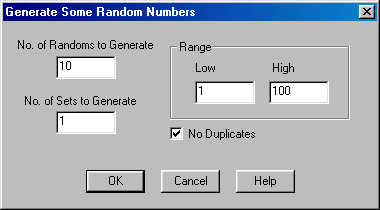Most people hate math, and abhor statistics. I get it. Not even Han Solo wants to read this article. But some things are kind of important, and I’ll try to make it as painless as possible. Earlier this week I was playing Microtransaction Simulator, from Steam. It’s a recently released game, if you can call it a game, which is more entertaining than it has any right to be (which really isn’t saying much). I’ll get more into that in a moment, but playing the game, which explicitly brings up random number generators, and sells a perk which claims to boost your random numbers got me thinking about how most game developers keep players in the dark. I’m looking at you, Gearbox, and your +2 Team Find Rare Items on Borderlands 1.
For those of you who are blissfully ignorant, microtransactions are a way for developers to make money *after* they sell you their game. They are in-game or in-app purchases for little things, whether it be purely cosmetic (new armor appearances, hairstyles, colors), quality of life improvements (features which make playing more enjoyable, less like work), or, as happens too often, the pay-to-win type (getting a competitive advantage by spending money). Don’t worry, though, this isn’t about microtransactions. I played Microtransaction Simulator way longer than I should have, partly out of morbid curiosity, I get way too involved in grindy collection games, and also because I was trying to test their random number generator (oh, the beloved RNG we love to complain about!), especially given that one of the perks you can buy supposedly bolsters the quality of your rewards for opening packs.
HOW DO GAMES USE THE RNG
The first use I heard of random number generators was from old-school RPGs. It seemed like whenever you do an attack (or a heal), the numbers were rarely the same. The same character could use the same attack on the same monster, and get different numbers each time. Star Wars: The Old Republic is probably the game I’ve played that makes the most widespread use of the RNG. Not only are attacks, defenses, heals, and the like determined partially by RNG, but (like Borderlands), loot from enemy drops and chests also use RNG. In the crafting system, if you dismantle an item through reverse engineering, you have a chance to learn a better schematic (which, if you’ve played lately, they now tell you the probability of success, which is higher than it was originally). When you’re crafting, RNG determines if you get bonuses. One of the more common uses for RNG, which came late to SWTOR, is for loot packs, which are purchased sometimes with in-game currency, but quite often with real-life money.
So basically, depending on what game you play, your chances of success, as well as your rewards for playing, may be determined in large part by random number generators. Sure, skill and intelligence play a part in most things, but don’t underestimate the power of the RNG. And when it comes to loot packs? Without knowing the odds, skill and intelligence can’t help you, unless you decide not to waste your money on loot packs at all.
HOW DOES A RANDOM NUMBER GENERATOR WORK?
 Different systems work differently, and given how little most developers tell you, I can only talk in generalities here. Think of it like dice, though. A standard die has six sides, and is numbered 1-6, and, if it’s made properly, has the same probability of landing on any of those six sides. That’s easy to understand. Now add in a second die. Nothing has changed, individually, but the results are way different. Before, we could end up with equal odds of getting 1-6, now we can get 2-12, but the probabilities are strikingly uneven. You only have a 1/36 chance of rolling a two, and the same odds for 12, your best bet is for a seven. Now add in a third die. And a fourth. And a fifth. If this is how the RNG works on the loot chest you’re tempted to buy, then you can see why developers use this system to get you to buy a LOT of packs to get that one item you want. You see, this is why Powerball makes so much money for the lottery. Sure, the odds of getting the first number correct is 1/64, but getting each subsequent number is so insanely unrealistic that you’d be better off just giving your $1 for the ticket, or $10 for the loot pack, to the next person you meet on the street . Or, better yet, supporting someone on Patreon (wink wink).
Different systems work differently, and given how little most developers tell you, I can only talk in generalities here. Think of it like dice, though. A standard die has six sides, and is numbered 1-6, and, if it’s made properly, has the same probability of landing on any of those six sides. That’s easy to understand. Now add in a second die. Nothing has changed, individually, but the results are way different. Before, we could end up with equal odds of getting 1-6, now we can get 2-12, but the probabilities are strikingly uneven. You only have a 1/36 chance of rolling a two, and the same odds for 12, your best bet is for a seven. Now add in a third die. And a fourth. And a fifth. If this is how the RNG works on the loot chest you’re tempted to buy, then you can see why developers use this system to get you to buy a LOT of packs to get that one item you want. You see, this is why Powerball makes so much money for the lottery. Sure, the odds of getting the first number correct is 1/64, but getting each subsequent number is so insanely unrealistic that you’d be better off just giving your $1 for the ticket, or $10 for the loot pack, to the next person you meet on the street . Or, better yet, supporting someone on Patreon (wink wink).
“I’m feeling lucky!” or “Yeah, I know, I’ve lost several times, but that means I’m due!” No…no you’re not. Let’s go to a coin, for ease of the argument. A properly balanced coin should give you a 50% chance of heads, and a 50% chance of tails (it’s a bit more complicated, but you get the point). If you got heads this time, does that mean you’re going to get tails next time? No, it evens out over time, but getting heads last time doesn’t change the probability of the next coin flip. So say you’re on a hot streak, and have beat your friend by calling tails four times in a row. Does the coin care about that for the next flip? Does gravity? Probability is probability, and the only way to beat probability is to rig the system, or not play the game.
WHY IS THIS A BIG DEAL?
I’m confident that most developers are generally honest (although not open) about how their random number generators work. I’m not suggesting they design them for you to *always* fail. What I am suggesting is that ignorance of how the system works probably means it’s not working in your favor. For example, if there’s a new loot pack with an amazing mount, or weapon, or hero, but they don’t tell you the odds of getting it, then you’d better be prepared to break the bank. Interestingly enough, China recently began requiring companies to specifically clarify the odds of winning, which I believe is a step in the right direction, but I personally would hope that developers would be more open with the specific mechanisms at play.
FOR EXAMPLE…
 Let’s go back to Borderlands for a second. Borderlands 2 was a great game, but I loved the loot system of the original, because you could basically get the highest tier weapons randomly dropping almost anywhere (rather than having to fight a specific boss 734 times to get the weapon you want). In that game, you had four different classes of characters, with each having three skill trees they could choose to bring some variety to gameplay and character builds. Each player could also wear a mod, which gave them a set of bonuses. My favorite character was Mordecai, and one of his mods (I’m pretty sure Lilith had one too) had a perk that said “+2 Team Find Rare Items”. Pretty epic, right?
Let’s go back to Borderlands for a second. Borderlands 2 was a great game, but I loved the loot system of the original, because you could basically get the highest tier weapons randomly dropping almost anywhere (rather than having to fight a specific boss 734 times to get the weapon you want). In that game, you had four different classes of characters, with each having three skill trees they could choose to bring some variety to gameplay and character builds. Each player could also wear a mod, which gave them a set of bonuses. My favorite character was Mordecai, and one of his mods (I’m pretty sure Lilith had one too) had a perk that said “+2 Team Find Rare Items”. Pretty epic, right?
I wore that mod religiously, even though I didn’t know how it works (and I still don’t). If I had equipped another mod, I could have had much better perks for myself and my team…but I wanted to boost that precious RNG. Later testing from several members of the gearbox forums community suggested that, if the mod did anything, the benefit was so slight that hours upon hours of rigorous testing couldn’t uncover any discernable difference in loot quality.
So let’s imagine every item of loot ranges in quality from 1-99. And let’s say that the mod did, in fact, work. What does +2 mean? Does it mean that when I opened that red chest over there, that the item inside would have been a 9 but is now an 11? Or an 87 but is now an 89? Or, if the game is rolling multiple dice, as it were, does the +2 get added to each one, or just one of them? In that case, instead of being a 2% bonus, with four dice it would be an 8% bonus, so that would make it more worthwhile. But what if weapons ranged in quality from 1-999, and it only gave the +2 once. You see, it’s not that the system is broken necessarily, it may be working perfectly, but without knowing how it works, it’s almost impossible to judge whether that is a beneficial mod or not.

Just as important as it is for the consumer to understand how interest works (you really should), everyone who plays games with a random number generator should at least have a basic understanding of how probabilities work, and how these systems are made. It would be really nice if developers would also be more open about how their systems work, so that players can make the best choices for their gameplay. Sometimes, that knowledge wouldn’t do much, but often, it can mean the difference between finding that epic piece of loot you want, or getting yet another item for the vendor. It can mean beating that difficult boss, or failing again and again. Skill and intelligence can get you through difficult fights, though, but skill isn’t going to get you that item you want from the newest loot pack, and if you and I are ignorant of the odds, the only way intelligence can help is by telling you not to buy it at all. So maybe, just maybe, you and I should consider holding off on those loot packs until developers tell us how their systems work.




